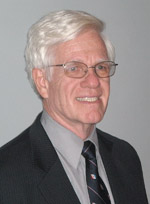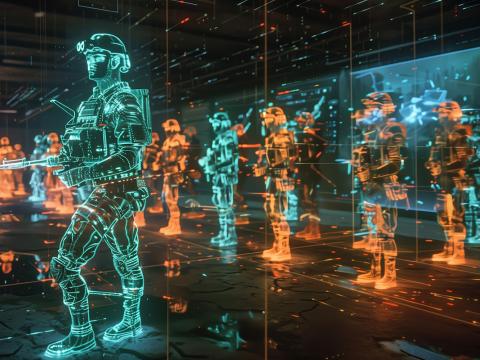Look Outside the Wire for Information Sharing
 |
Improving the way we share unclassified information is essential to the success of the president’s strategy for
This is not limited to
In these contexts, unclassified situational awareness and the communications networks to share it are not merely technical adjuncts to population-centric strategies or to delivering major HA/DR supplies such as food, shelter, water and security. They are critical enablers.
This requires that
Policy and doctrine within the Department of Defense (DOD) increasingly support such information exchanges, but a serious flaw in the past has been that such high-level pronouncements often have not been translated into effective field operating procedures. For example, during recovery efforts after the devastating
Two areas where effective tactics, techniques and procedures to implement unclassified information sharing policy could yield quick wins are bandwidth sharing and data sharing.
In April 2009, the assistant secretary of defense (networks and information integration)/DOD chief information officer issued a Defense Department Instruction to promote bandwidth sharing (DODI 8220.02) in complex operations. Among other things, it states: “ … information-sharing activities that facilitate coordination and cooperation between DOD and non-DOD partners will be established to enable common understanding of the stabilization and reconstruction, disaster relief, and humanitarian and civic assistance environment; and to support an integrated whole-of-government response capability.”
This instruction represents a significant advance in Defense Department information-sharing policy, yet it is relatively unknown among operators. DODI 8220.02 should be incorporated widely into training and practice.
For data sharing, Todd Huffman, who has extensive PVO experience in
The second is to make contributor data available with improvements. Any data that goes in should be available to download back out again. Furthermore, data should come back better than when entered.
The third principle is to share derivative works back with the data-sharing community. Users who create derivative works from shared data should be urged to contribute their products back to the group.
These simple principles often are not followed. Too often data contributions—especially to government and corporations—are not returned or reciprocated, which has caused wariness in the private sector and the NGO/PVO communities. On the other hand, remarkable successes have been achieved in eastern
Responsible unclassified information sharing offers huge benefits in virtually all operations in which we’re likely to be involved. There always will be security concerns—often legitimate—but the benefits of a responsible sharing environment need to be weighted heavily against visceral inclinations to protect. The underlying point remains that the
Linton Wells II is the transformation chair and a distinguished research professor at the




Comments